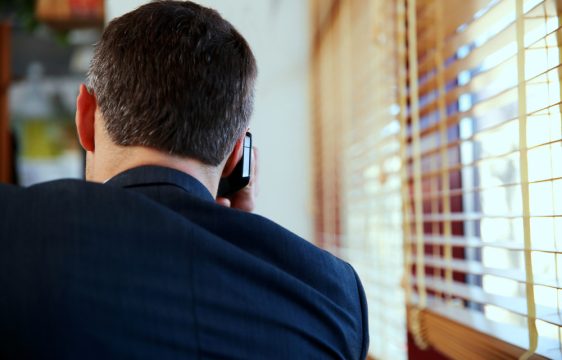The federal government is now in a state of National Emergency, and shelter-in-place orders are starting to be issued to protect people from COVID-19 (the novel coronavirus). States and local governments are shuttering the doors of schools, courts, and other places of mass gatherings.
– Is My Job Protected If I Am Quarantined Because I Am Exposed or Infected by COVID-19?
– What If I Need Time Off to Take Care of An Infected Family Member?
– I Am A High Risk worker, But I Am Not Sick – What Rights Do I Have?
– I Am Being Harassed Because of My Race or National Origin Because of COVID-19
– What If I Complain About Unsafe Working Conditions at My Worksite Related to COVID-19?
– What Do I Do If I Think I Have Been Subjected to Harassment, Discrimination, or Retaliation?
In these times of uncertainty, if you are wondering what your rights are about any of the above, please continue reading:
Is My Job Protected If I Am Quarantined Because I Am Exposed or Infected by COVID-19?
A number of federal and state laws may provide employees with job protection if they are quarantined because they are sick, or exposed to someone with COVID-19.
Workers May Have Protection under the Family Medical Leave Act as Amended by the Emergency Family and Medical Leave Expansion Act
The Family Medical Leave Act (FMLA) provides up to 12 weeks of unpaid job protection to employees who are absent from work because of the employee’s own serious health condition, or to care for certain specified family members with serious health conditions (addressed further below). The Families First Coronavirus Response Act (FFCRA)[1], which was just signed into law on March 18, 2020, and which will go into effect on April 2nd, and provides extended coverage for employees who need who need to take leave because of COVID-19 through amendments to the FMLA by the Emergency Family and Medical Leave Expansion Act.
Ordinarily, in order to qualify for FMLA leave, the employer must employ 50 or more employees within 75 miles of the worksite.[2] Further, the employee must have been employed for at least 12 months as of the date the leave commences, and worked for at least 1250 hours during the 12 months immediately preceding the leave. FMLA provides job protection and reinstatement rights. In other words, if you qualify for FMLA leave, your employer has to reinstate you into the same or a similar position after your leave is over.
Now, the Emergency Family and Medical Leave Expansion Act, expands coverage to employees who have worked for the employer for at least 30 days prior to the leave. Additionally, the FFCRA changed the definition of what employers are covered by the act temporarily from employers with 50 or more employees to “fewer than 500 employees.” What this means is that if you work for an employer with fewer than 500 employees for at least 30 days before you started your leave. However, smaller employers with less than 50 employees may still be eligible for exemption from this law under certain circumstances. The Secretary of Labor also has the discretion to exempt emergency responders and healthcare workers.
Under the FMLA, a “serious health condition” is an “illness, injury, impairment, or physical or mental condition” that requires either, “in patient care in a hospital, hospice, or residential medical care facility,“ or “continuing treatment by a health care provider.”[3]
If you become sick, you should notify your employer right away, in writing if possible. Your employer may request a medical certification of your need for leave. This also does not give your employer the right to have unlimited access to your medical records.[4] Provide the medical certification from your doctor in a timely way to your employer so essentially as soon as you can.
Now, Under the FMLA as amended by the Emergency Family and Medical Leave Expansion Act, an additional category has been added for employees to take a qualifying leave if it is “related to a public health emergency” which is defined as “an emergency with respect to COVID–19 declared by a Federal, State, or local authority.” A “qualifying need” is considered a leave because the employee needs to care for their child (under the age of 18) if their school is closed or their childcare is unavailable because of a public health emergency. For more information on this new category, please see below under: Can I Be Fired If I Have to Stay Home to Take Care of My Kids Because of School Closures Related to COVID-19?
If you are granted FMLA leave, your employer must continue your group health benefits during the time you are on leave – both for you and your family members on the plan. You will continue to be responsible to pay for your portion of the premium during that time.
Some Workers May Have Additional Protections under the Americans with Disabilities Act or the Rehabilitation Act
The Americans with Disabilities Act (ADA) prohibits your employer from discriminating against you because you have or are “regarded as” having a disability. Under the ADA, a disability is considered any “physical or mental impairment that substantially limits one or more major life activity” or “being regarded as having such an impairment.”[5] Employers, employment agencies, labor organizations, and joint labor-management committees must comply with the ADA if they have 15 or more employees.[6] Federal workers and federal contractors have similar protections under the Rehabilitation Act.[7] The EEOC recently issued guidance regarding the ADA and COVID-19, which can be viewed here: https://www.eeoc.gov/eeoc/newsroom/wysk/wysk_ada_rehabilitaion_act_coronavirus.cfm
If you are actually infected with COVID-19, you will likely be considered disabled under the ADA or Rehabilitation Action if you are so sick that the illness is substantially limiting to a major life activity such as breathing. However, even if you are not disabled because you are actually sick, you may be considered “regarded as” disabled if you have been exposed to COVID-19 and quarantined to prevent the spread of the disease. This is still a legally murky area and continues to develop as we enter this stage of the pandemic.
If you can perform the “essential functions” of your job with a “reasonable accommodation” from your employer, you are protected from discrimination – such as being terminated or demoted because of your disability.[8] Similarly, your employer must provide reasonable accommodations to you as long as they don’t impose an “undue hardship” on the company.[9]
You should notify your employer right away if you believe that you are disabled because you have been exposed to COVID-19. One you notify them, you should do your best to engage in a good faith interactive process with them (that means ongoing communications with your employer) to try to figure out reasonable accommodations. Reasonable accommodations can include time off of work or teleworking depending on what the essential functions of your job are, and whether those accommodations would impose an undue hardship on the company. Your employer may ask for limited medical information to determine what accommodations are appropriate, but they are not allowed unlimited access to your medical records.[10]
Workers May Have Additional Protections under State Law
Some states provide specific laws that protect quarantined employees. For example, Maryland prohibits an employer from firing an employee who is under isolation or quarantine as ordered by the Maryland government.[11] Maryland also recently passed a COVID-19 Public Health Emergency Protection Act that expressly prohibits employers from terminating an employee “solely on the basis that the employee has been required to be isolated or quarantined or if the individual leaves employment due to a risk of exposure or infection COVID–19 or to care for a family member due to COVID-19.”
(https://governor.maryland.gov/2020/03/19/governor-hogan-enacts-emergency-legislation-to-enhance-ongoing-response-to-covid-19/)
Additionally, some states also provide additional protections for disabled employees. For example, under the Fair Employment and Housing Act in California carries a more extensive definition of disability – under the FEHA a disability need only “limit” a major life activity, instead of having to meet the “substantial limitation” requirement of the ADA. Protection also extends to employers with 5 or more employees. Protections available to disabled workers in Washington, DC under the DC Human Rights Law extend to all employers with 1 or more employees.
A number of states have also enacted laws similar to FMLA that may provide additional rights. For example, the California Family Rights Act, provides protections similar to the FMLA. The DC Family Medical Leave Act also provides more extensive protection to employees in the District, covering employers with 1 or more employees, and employees who worked just 1000 hours in the last year.
You should contact an employment lawyer to determine whether you have additional protections under state or local laws.
What If I Need Time Off to Take Care of An Infected Family Member?
The FMLA also provides up to 12 weeks of job protection to employees to date care of a child, spouse, or parent with a “serious health condition.” Your employer must be a covered employer under the FMLA, and you must meet the other eligibility requirements.
Can I Be Fired If I Have To Stay Home to Take Care of My Kids Because of School Closures Related to COVID-19?
Under the FCCRA as amended by the Emergency Family and Medical Leave Act, the FMLA was temporarily amended to allow an employee to take leave to care for their child (under the age of 18) if their child’s school or is closed, or their childcare is unavailable because of a public health emergency related to COVID-19. This means that if you worked for 30 days for an employer with 500 or less employees you may qualify for up to 12 weeks of job protected leave. If your employer has more than 25 employees, your job will generally be protected, and your employer will, with some exceptions, be required to reinstate you into a same or similar position after your leave is over. However, employers with less than 25 employees are not necessarily required to reinstate you if your position is eliminated because of the COVID-19 crisis if they meet certain conditions.
Importantly, employers of health care providers and emergency responders are permitted to elect to exclude those employees from these provisions.
Some states may provide protection. For example, California Labor Code 230.8 prohibits employers with 25 or more employees from discriminating against a parent or guardian of a child in K-12 for taking up to eight hours a month and 40 hours a year of time off of work for among other things, “[t]o address a child care provider or school emergency, if the employee gives notice to the employer.”
I Am A High Risk Worker, But I Am Not Sick – What Rights Do I Have?
If you have another medical condition that qualifies as a disability under the ADA, you can request reasonable accommodations from your employer. Depending on the essential functions of your job, such accommodations can include telecommuting, job restructuring, or even time off work.
I Am Being Harassed Because of My Race or National Origin Because of COVID-19
As has previously happened in history, the first group of people to be victimized by a pandemic can also be blamed and discriminated against by other people because of it. In the U.S. such harassment is prohibited by Title VII of the Civil Rights Act of 1964 on the basis of race, national origin, and color, among other protected classes. Harassment creates a hostile work environment when there are severe or pervasive conduct or comments such that a reasonable person would consider the workplace intimidating, hostile, or abusive. Harassment can include, but is not limited to slurs, offensive jokes, insults, racial epithets, name calling, physical violence or threats of violence, offensive pictures, and other interference with your work. Title VII also protects against retaliation for reporting harassment, or participating in an investigation of harassment.
If you feel you are being harassed, you should complain to your employer about the conduct, document the harassment, and contact a lawyer.
Can My Employer Take My Temperature or is that a Medical Exam? Can They Ask Me About Specific Symptoms?
For now, yes. The ADA governs disability related inquiries and medical examinations in the workplace. While the ADA generally protects employees from being discriminated against or excluded from the workplace because of their disability, unless they pose a “direct threat.”[12] Although taking an employee’s temperature is generally considered a medical examination, it is likely that they can argue that COVID-19 poses a direct threat to other employees, thereby allowing employers to take your temperature. However, not everyone who has COVID-19 will present with a temperature, so this may not be an effective strategy for employers. Similarly, at this point, employers will likely be permitted to ask employees whether they are experiencing specific symptoms of COVID-19, but they need to keep this information confidential. Similarly, employers may not disclose to other employees confidential medical information regarding any individual employee’s disability.
What If I Complain About Unsafe Working Conditions at My Worksite Related to COVID-19?
The Occupational Health and Safety Administration (OSHA) administers many workplace health and safety laws, and has issued guidance about a number of regulations that may be applicable to exposure to COVID-19 in the workplace.[13] Twenty eight states have OSHA approved state plans that operate state-wide occupational health and safety programs, including Maryland, Virginia, and California. You are protected from retaliation for reporting concerns about health and safety. The time limits to bring retaliation complaints can be extremely short – sometimes as short as 30 days. You should contact a lawyer immediately if you feel you are being subjected to retaliation because you reported health and safety concerns related to COVID-19.
Some states have additional protections for whistleblowers when you make complaints of violations of public policy.
What about My Lost Wages?
Under the FFCRA as amended by the Emergency Family and Medical Leave Act, if you are a full-time employee and otherwise qualify for Emergency FMLA, after a 10 day waiting period, your employer must pay you at two-thirds your regular rate of pay for the number of hours you normally world have worked up to a maximum of $200 per day, capped at $10,000 total. Part-time employees may also be entitled to paid leave based on the average hours worked in the six months before taking the emergency leave. You can use accrued vacation, personal leave, or medical or sick leave during that unpaid 10 day waiting period.
The FFCRA also includes the Emergency Paid Sick Leave Act that requires employers to provide full-time employees with up to 80 hours of paid sick leave, and part-time employees with paid sick leave for “a number of hours that such employee works, on average, over a 2-week period” for a qualifying reason. Qualifying reasons include:
· Quarantined by federal, state, or local government order because of COVID-19, or caring for someone who has been quarantined;
· Advised by your health care provider to self-quarantine because of COVID-19, or you are caring for someone who has been advised by a health provider to be quarantined;
· Are seeking a medical diagnosis because you are experiencing COVID-19 symptoms;
· Caring for your child because their school is closed or childcare is unavailable because of COVID-19 precautions;
· Experiencing a “substantially similar condition” to COVID-19
If you qualify, employees may be entitled to up to $511 per day and $5110 total for taking time off because you are quarantined or are seeking an opinion from your health provider for COVI-19 symptoms; and caretakers may be entitled to up to $200 per day and $2000 total. If you qualify for paid sick leave under this Act, your employer cannot require you to find someone to cover your shift while you are using the paid sick time. Your employer also cannot require you to use other paid leave provided by the employer before using the paid sick time under this Act.
Again, the Act allows exclusions for employers of health care providers and emergency responders, as well as possible exemptions for small businesses with less than 50 employees if it would “jeopardize the viability of the business.”
Importantly, your employer cannot discriminate or retaliate against you for taking paid leave under this Act, or for making a complaint related to this Act.
As of March 12, 2019, the Department of Labor also announced new guidance to the states regarding the flexibility to administer their unemployment insurance programs during the COVID-19 pandemic. “[F]ederal law allows states to pay benefits where: (1) An employer temporarily ceases operations due to COVID-19, preventing employees from coming to work; (2) An individual is quarantined with the expectation of returning to work after the quarantine is over; and (3) An individual leaves employment due to a risk of exposure or infection or to care for a family member. In addition, federal law does not require an employee to quit in order to receive benefits due to the impact of COVID-19.” (https://www.dol.gov/newsroom/releases/eta/eta20200312-0)
If your COVID-19 infection arose out of or in the course of your employment, state workers compensation laws may also provide job protection, medical treatment, and wage replacement. Some states have already directed their respective departments of labor to ensure workers’ compensation protections for certain classes of employees including healthcare workers and first responders.
You may also be able to get wage reimbursement through state or private short term disability insurance depending on whether you are sick and/or qualify as disabled.
There are additional wage replacement plans being considered by Congress, including a stimulus plan that may include $1000 for every adult and $500 for each child, paid directly to every American within nine weeks.
What Do I Do If I Think I Have Been Subjected to Harassment, Discrimination, or Retaliation?
If you think you have been subjected to discrimination, you should act quickly to protect your rights. There are strict time limits called “statues of limitations” that govern when you can bring your claims. Those time limits differ depending on what claim you are making. Contact a lawyer to help you protect your rights. Here are some helpful links to agencies where you can report violations:
o Equal Employment Opportunity Commission – Complaints of discrimination, harassment, retaliation related to disability or another protected class: https://www.eeoc.gov/employees/howtofile.cfm
o Federal Employees: Federal Employees have a different process and different statutes of limitations. Some helpful information can be found here: https://www.eeoc.gov/federal/fed_employees/filing_complaint.cfm
o California Employees: Department of Fair Employment and Housing – https://www.dfeh.ca.gov/complaintprocess/?content=fileComplaint#fileComplaintBody
o Maryland Employees: https://mccr.maryland.gov/Pages/Intake.aspx
o Virginia Employees: https://www.oag.state.va.us/programs-initiatives/human-rights
o DC Employees: https://ohr.dc.gov/service/file-discrimination-complaint
· OSHA – Health and safety violations and retaliation: https://www.oshaeducationcenter.com/articles/reporting-labor-violations/
o California Employees: Cal/OSHA https://www.dir.ca.gov/dosh/complaint.htm
o Maryland Employees: MOSH https://www.dllr.state.md.us/labor/mosh/complaintpage.shtml
o Virginia Employees: https://www.doli.virginia.gov/vosh-programs/how-to-file-a-vosh-complaint/
Erika Jacobsen White is an employment and labor lawyer with Joseph, Greenwald & Laake’s Greenbelt, MD office, and practices in in California and in the DMV area. If you need legal help, you can contact her here at EWhite@jgllaw.com or 240-553-1217
[2] 29 U.S.C. § 2611(4)(A)(i); 29 C.F.R. § 825.111(b).
[3] 29 U.S.C. § 2611(11); 29 C.F.R. § 825.115.
[4] 29 U.S.C. § 2613(b)(1)-(4); 29 C.F.R. § 825.306.(a)-(b).
[5] 42 U.S.C. § 12102(1); 29 C.F.R. § 1630.2(g).
[6] 42 U.S.C. §§ 12111(2), 12111(5)(A); 29 C.F.R. §§ 1630, 1630.2(e)(1).
[7] 29 U.S.C. § 705(9)(B); 41 C.F.R. § 60-741.2(g).
[8] 42 U.S.C. § 12112(a).
[9] 42 U.S.C. § 12112(b)(5)(A); 29 C.F.R. § 1630.9.
[10] 42 U.S.C. § 12112(d)(4(A).
[11] Md. Ann. § Code 18-906(e).
[12] 42 U.S.C. §§ 12111(3), (8); 29 C.F.R. §§ 1630.2(r), 1630.15(b)(2). 29 C.F.R. § 1630.2(r).



